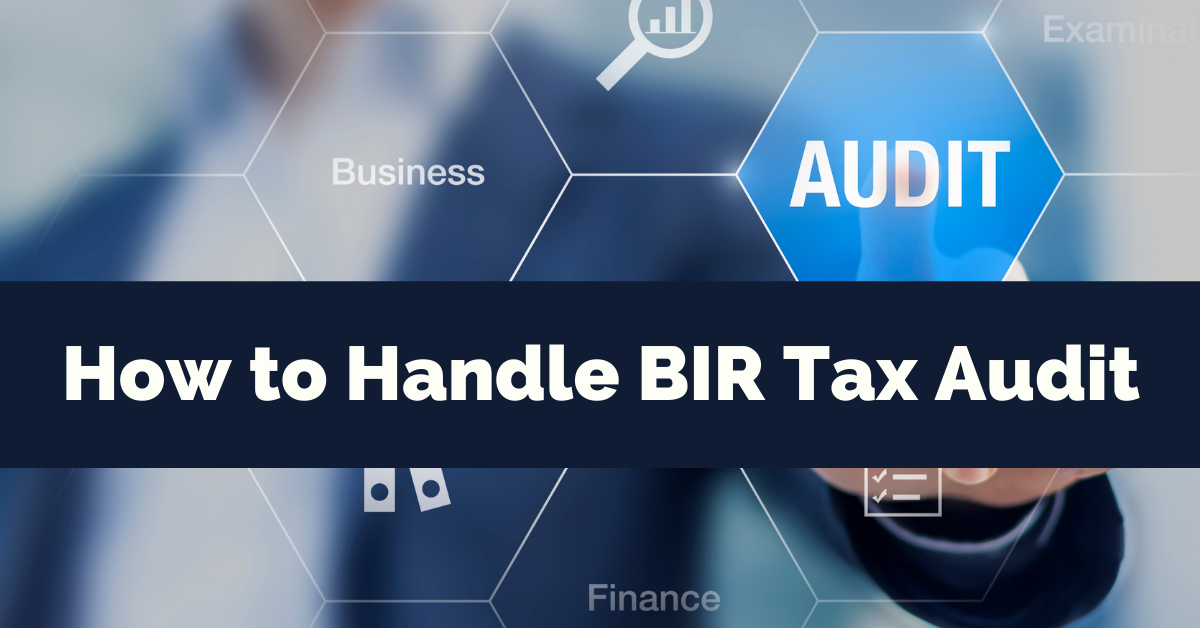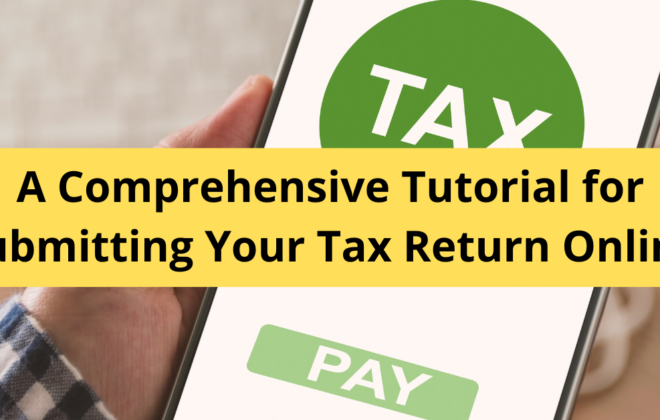How to Handle BIR Tax Audit
The country’s tax system works on the principle of voluntary compliance, wherein the taxpayer is responsible for determining which taxes to be paid, when to pay them, and how to comply with the reportorial requirements.
The government, for its part, adapts a check-and-balance system, in which the BIR has the right to examine the taxpayer’s records to ascertain the extent of his compliance with the tax laws.
In general, we are all candidates for a tax audit, whether you’re a single proprietorship, partnership, or corporation. Nobody is exempted. We have no control over how the bureau selects taxpayers for audit since this is random however, what we can control, though, is how to play the BIR tax audit in our favor.
Thus, it is important that we know the rules and our rights as taxpayers. Learning and understanding the assessment procedure is the best defense when we are confronted with a BIR audit.
How to Prepare for BIR Audit
From keeping your records updated and organized to making the corrections from the last BIR audit, here are a few ways to be audit-ready.
Update Your Books of Accounts Regularly
There are three kinds of books – manual, loose-leaf, and computerized. The easiest one to register is the manual books.
Updating your books can save you a lot of time. Once the BIR Examiner visits, you can submit the records to him immediately. Moreover, submitting specific reports needed during the audit is easier to prepare if we have completed documents.
Keep Track of Sales and Expenses.
Be on top of your business. Organize your receipts and invoices properly. Filing sales receipts is more accessible because they are already kept per booklet. You may file invoices for purchases and other expenses chronologically with a fastener and folder.
Impress your examiner by submitting neatly arranged files for sales and expenses.
If you are using the 8% or 40% optional standard deduction in filing your income tax, there is no need to submit the files.
Know the Rules.
You have updated books and decent files of your sales receipts and invoices, but your tax audit may be a failure if you don’t know the rules.
The goal is to know what to do when you received the LOA, Assessment Notice, and Sub Poena and ultimately comply with a tax audit and pay a reasonable amount of tax.
Letter of Authority (LOA)
Your audit journey starts when you receive the LOA. The LOA is an official BIR letter authorizing one of their personnel to examine your books and records to know if you file and pay the correct taxes.
Most taxpayers react with fear and panic the first time they received the LOA. We can’t blame them. Receiving an LOA stating the schedule of audit and the list of records to submit can mean paying thousands of pesos in penalties if we cannot handle the engagement effectively.
LOA is effective within thirty days from the date of issue. We may issue a protest if the form is served after the effectivity period.
Pre-Assessment Notice (PAN)
The BIR examiner issues the list of findings and assessment after reviewing your records. You are allowed to protest the results within 15 days from receipt of the notice. Otherwise, you should pay the final tax due.
Final Assessment Notice (FAN)
After reviewing your protest and if they found no valid arguments, BIR will issue the FAN.
If you disagree with the assessment, you must file a Protest within 30 days from receipt of FAN.
Final Decision on Disputed Assessment (FDDA)
Based on your protest and presentation of evidence, BIR may either grant or deny your protest through a formal letter – FDDA.
In some cases, BIR may not issue a Formal Notice denying your protest but may proceed with the collection proceedings by giving Preliminary Collection Letter (PCL).
In this scenario, you lost your case, but this doesn’t mean the game is over. An appeal is still feasible through a Petition for Review with the Court of Tax Appeal or Supreme Court, if necessary.
Learn the Ropes.
The BIR tax audit is not something to be afraid of. Knowing the tax assessment process and your rights as a taxpayer are a good starting point for a positive working experience with BIR personnel.
You’ll never know when is your time to be assessed. The best way to prepare for a tax audit is to update your books regularly and pay your taxes correctly. If your records are in order, the audit process is just a formality.
Our Team Can Help You.
Dealing with BIR personnel can be stressful and challenging. Do not allow yourself to cower in front of these people. Be the boss you ought to be.
Protect your business and avoid the risk of paying tax penalties because you are not familiar with the assessment process.
Our team can help you ace the BIR audit and avoid tax penalties. You may email us at info@djkaaccounting.com for inquiries and consultation.
Recent Posts
- New Features and Functionalities of the Online Registration and Update System (ORUS)
- A Comprehensive Guide to Taxation for Freelancers in the Philippines
- New Tax Laws in 2024: What Changes Filipino Taxpayers Should Prepare For
- How to Avoid Common Tax Mistakes in 2024
- Tax Deductions and Benefits Often Overlooked by Filipino Taxpayers





